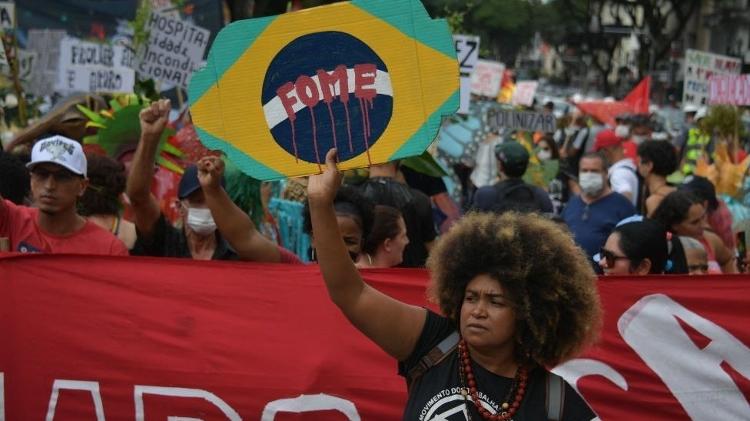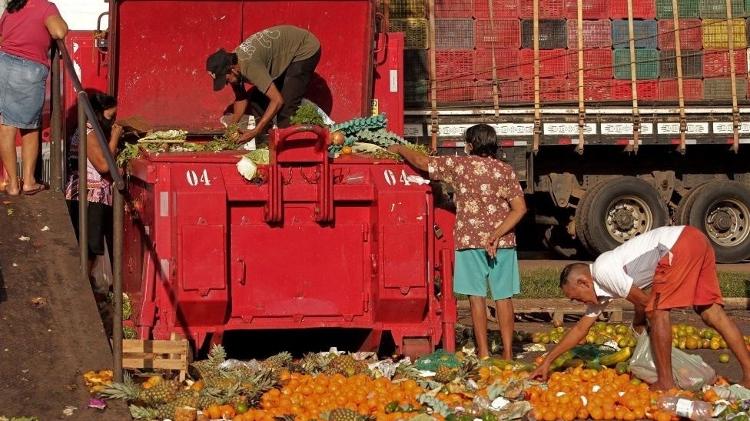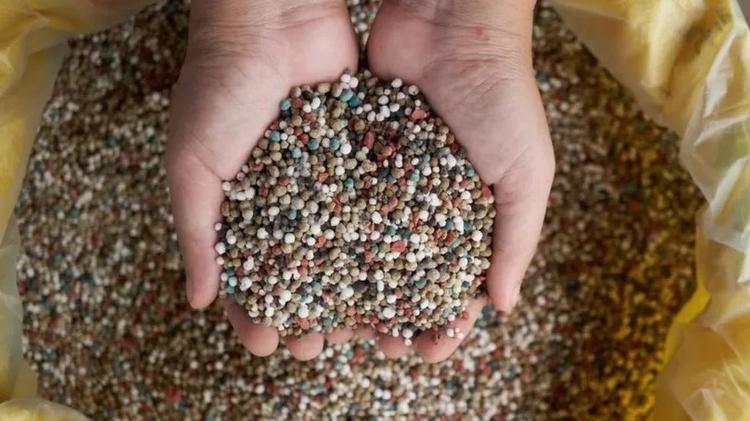According to Rafael Zavala, representative of the United Nations Food and Agriculture Organization (FAO/UN) in Brazil, the country has failed to prioritize tackling hunger at the national level in recent years, resulting in “a frightening number” of unsafe food. throughout its territory.
According to the National Survey of Food Insecurity in the Context of the Covid-19 Pandemic in Brazil, conducted by the PENSSAN Network and published in early June, 33.1 million Brazilians live in a state of starvation in the country. There were 19.1 million at the end of 2020.
In another survey conducted by Datafolha in the penultimate week of June, 1 in 4 respondents said that the amount of food available at home is less than needed to feed their family.
“The fight against hunger at the national level has not been given priority,” Rafael Zavala told BBC News Brasil in an interview. Said.
According to the Mexican, who has held the top spot of FAO/UN in Brazil since the end of 2018, Brazil’s problem is not food shortages like other parts of the world, but inequality.
Zavala says the country became the hero of one of the most successful campaigns against food insecurity in the world, when in 2014 it reduced the proportion of starving citizens to 1.7% of the population, or 3.4 million. and overcame the problem of extreme poverty.
However, important practices that contributed to this scenario, such as investments in the minimum wage and job creation, have been abandoned in recent years.
“The country knows how to change this situation,” says the Mexican.
Zavala gave an interview to BBC News Brasil this Thursday (06/30) on the occasion of his participation in the Forte de Copacabana International Security Conference, an international security event designed by the Konrad Adenaur Foundation, the Delegation of the European Union and the Brazilian Center for International Affairs. relationships.
Here are the main quotes from the interview:
BBC News Brazil – Several recent polls have revealed a significant worsening in the situation of hunger in Brazil. One of them mentions 33.1 million Brazilians, or 15.5% of the population, who are food insecure. How do you evaluate the current situation?
Rafael Zavala The aforementioned study measured the number of people surveyed who said they felt hungry at some point. This means that 33 million people are currently not hungry at the same time. But either way, that’s a frightening number.
We can say that there are currently two pockets of poverty in Brazil: the big cities and the more remote and uncommunicative rural areas, where a disruption to the supply flow could create conditions of severe food insecurity.
On the other hand, it is clear that Brazil had one of the most successful experiences in fighting hunger not only in Latin America but also in the world about 15 or 20 years ago. In other words, the country knows how to change this situation.
BBC News Brasil – What was the formula that contributed to this successful experience? How should it be adapted to the present?
Zavala – Five main priorities were followed. The first was to combat hunger across the country. The second and third were the increase in the minimum wage and investments in job creation. School meal programs, community kitchens, and restaurants were subsequently strengthened.
The fifth and final priority was the inclusion and promotion of family farming in public procurement, which meant stability for many families who would otherwise migrate to urban centres.
Only the last two of these five points remained stable today. Fighting hunger at the national level has not been given priority in recent years. Investment in food programs and the promotion of family farming continued, but this was not enough as it became very clear.
Whatever the next government’s strategy, it should prioritize tackling hunger across the country, while continuing with the largest investment in job creation and strengthening social inclusion programmes.
The problem in Brazil and Latin America is not the availability of food, but inequality, poverty and lack of income.
BBC News Brazil – Has the Covid-19 pandemic made the situation worse?
Zavala – Yes, the pandemic has shaken many industries. For example, when the curfew came into effect and schools were closed, many children did not get their main meal for the day.
Emergency relief was an extraordinary effort, but not enough, and many people starved – an estimated 20 million in the first year of the pandemic. But Covid-19 has also triggered inflation, which has meant higher prices for just about everything.
Also, a large portion of Brazil’s population is engaged in the informal economy and has seen their income for food drop during the pandemic. Then they went to buy
lower quality, more ultra-processed foods and less protein, fruits and vegetables lead to malnutrition. And this problem turns into obesity.
Therefore, a second challenge, in addition to hunger, is to promote healthier diets while ensuring that families have enough income for a healthy diet. This is one of the big challenges not just for Brazil, but for Latin America as a whole.
BBC News Brasil – Could the Brazilian government have acted differently to prevent or minimize the effects of the pandemic on food insecurity?
Zavala – I can imagine five years ago that the problem of hunger was more intense in the North and Northeast regions of Brazil. Therefore, it may be interpreted that this is only a regional problem. But that reality has changed and this issue should now be a national priority.
Moreover, hunger is a duty not only for government but also for civil society, state and municipal governments, especially in the case of Brazil, the most decentralized country in Latin America.
Rio de Janeiro, for example, has a municipal food security plan that I really like, with affordable cooking plans and Prato Feito that targets the most vulnerable populations. And this example is not unique.
I witness community restaurant programs and other similar schemes in Belo Horizonte, the Federal District, and other cities that need to be better promoted.
But the only acceptable hunger rate in Brazil is zero.
BBC News Brasil – What else would you attribute the data deterioration to?
Zavala – There is the context of a global crisis. We usually say that there are four main causes behind famine: armed conflict, economic crisis, climate shock and epidemics. All four are happening simultaneously in the world today.
In the last five years, we went back 10 years in terms of hunger data. Between 2016 and 2021, the number of people experiencing food insecurity increased by 80%. Of these, 72% are in countries with armed conflict, and 16% are in countries with serious economic conflicts. The remaining 12% is due to climate shock, particularly the long drought periods recorded in Africa and Asia.
It is also important to mention the Russian invasion of Ukraine, which caused a global logistical distortion, price hikes and inflation. At present, 350 cargo ships docked in the port of Odessa, loaded with grain and fertilizers, which are strategic inputs to produce food that will go to everyone, but not come.
UN Secretary-General António Guterres acknowledged that countries such as Yemen, Somalia and South Sudan, which depend on Ukraine’s wheat production, may suffer from “multiple starvation”.
BBC News Brasil – A study by Brazilian Agricultural Research Institute Embrapa showed that Brazil is responsible for feeding an estimated 800 million people worldwide through its agribusiness. At the same time, food insecurity continues to grow. To what do you attribute this contradiction?
Zavala – The fact that the country has a problem not with food availability, but with economic access to it.
Brazil is known in the world as the ‘granary of the world’ or ‘breadbasket’ for food production, especially grain. But I like to call it the ‘world food locomotive’. In other words, food already exists, is available, but inaccessible to minimum-income families.
Latin America has a population of 650 million and produces food to feed twice the population, but the biggest challenge is getting that food into homes. That’s why we have to work to generate income.
BBC News Brasil – What challenges does Brazil face in terms of agricultural production?
Zavala – There are two big difficulties. First, Brazil is a world food locomotive, but it uses fuel produced 12 thousand kilometers away. Most of the fertilizers and agricultural inputs used in the country come from Belarus, Ukraine, Russia and North Africa. Since countries such as Argentina and Chile suffer from the same problem, it is necessary to reduce this dependency and invest in a regional movement.
The second major challenge lies in the fact that unlike other food locomotives such as the United States, Canada, Argentina, India and China, Brazil is very close to the heart of planetary biodiversity. In other words, the hurdle is to create a truly sustainable farming strategy with zero deforestation to feed a population with zero hunger.
BBC News Brazil – When the country left the UN’s World Hunger Map in 2014, it had a huge impact here in Brazil. Where is the country now?
Zavala – The UN Hunger Map no longer exists. It was based on the Millennium Development Goals (MDGs) created in 2000 and replaced by the Sustainable Development Goals, and with the change, we changed the way of data communication.
However, it’s worth noting that if the Map was still available, it would currently be inside Brazil. Countries where more than 5% of the population is food insecure are listed – such is the case in Brazil today.
– This text was published at https://www.bbc.com/portuguese/brasil-62004074.
source: Noticias
[author_name]


